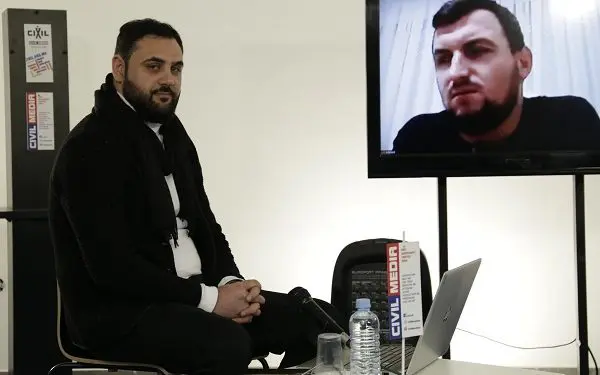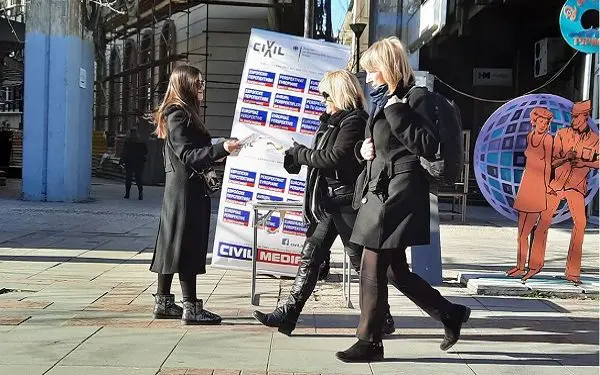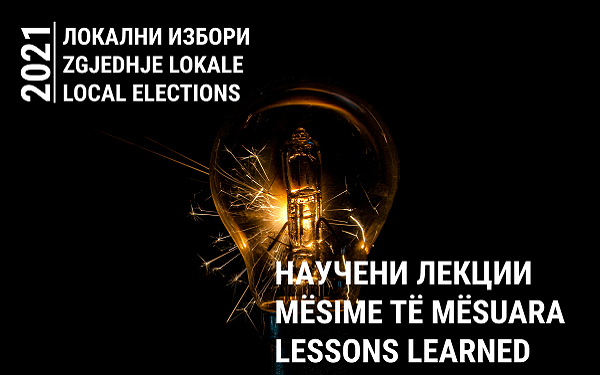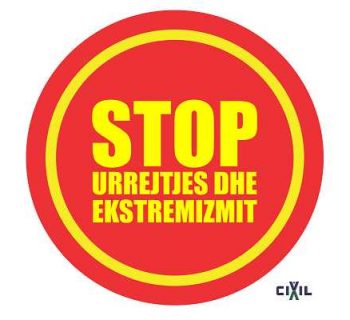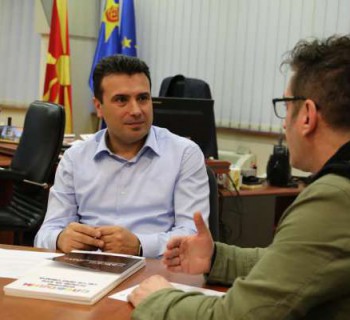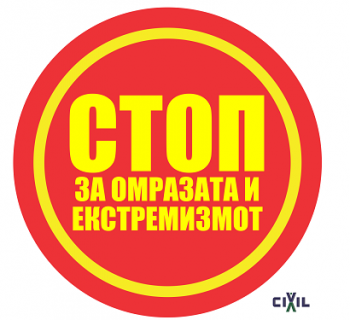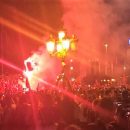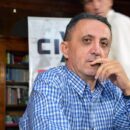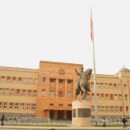Adelaid Karisic from the Bosniak Research Center Skopje, at CIVIL’s panel “Smaller Ethnic Communities: Between Statistics and Politics”.
“Bosniaks are one of the rare communities that at the beginning of the last century had their national expression and right to a mother tongue abolished by a decree. After a time period of some ninety-one hundred years, where Bosniaks did not have the right to express themselves as they felt, but were always imposed some names such as first - Serbs with a Muslim religion or Croats with a Muslim religion, and then, during the time of Yugoslavia also as Muslims with a capital M, the religious designation of a people was used as their national designation, so because of that reason, because we have consequences of the things that happened in the past, it was important for us as a people, to do this campaign (“It’s important to be a Bosniak”), and because there is still confusion in regards to the national expression, intentional, unintentional and so on, so we needed this campaign.
“We established a coordination body for the 2021 Census, in which all Bosniak NGOs were members, all Bosniak organizations acting in the Republic of North Macedonia were involved in the coordination body and in its work. We took the example of the census in Bosnia and Herzegovina, where the NGO sector did the campaign, and taking care for it not to be involved in these daily political topics, but only for the census. Certainly, we received both political and institutional support, from stakeholders in our society that belong to the Bosniak community.
At the first date for the census, which was April, we started with the campaign and with visiting settlements where Bosniaks live. They are six to seven municipalities, in particular, the City of Skopje and the Skopje municipalities, the Municipality of Studenicani and Batinci, the Municipality of Veles, Dolneni, and we held tribunes in those places, we started with Konjari, the Municipality of Petrovec, and with Ljubin, the Municipality of Saraj, but due to the pandemic, due to the restrictive measures, and later also due to the cancellation of the first date for the Census, we stopped with physical presence in places and conducted online campaigning. We also organized two events, the first was with senior representatives of political representative of the Bosniak ethnic community in the Republic of Kosovo, the second event was with representatives of the Foundation Alija Izetbegovic from Bosnia. They shared their experience from the census that was conducted in Bosnia, we conveyed experience of the representatives of Kosovo, of our census, because I think that they are also to have a census… I can say that we did a solid campaign, having in consideration the current conditions”, says Karisic.
“There was definitely a need for this campaign, because figures from the censuses, from the 90s and onwards, from when the independent state was formed, show that with national awareness, we have a smaller number of Muslims with a capital M and a larger number of Bosniaks, so I consider that it was needed”.
In terms of the implementation of the Census, Karisic says that it is the competence of the SSO.
“As a coordination body, we had no influence to participate directly on the ground. The SSO was responsible for that, rather we had only a consultative role, but were in contact with the enumerators of the census regions from the Bosniak community. They informed us on how the process of conducting the census on the ground was running”.
In regards to the challenges in the implementation of the census, Karisic says that as a coordination body they held a meeting with representatives of the State Statistical Office, where they were assured by the SSO that there will be no technical or other problems.
“At the beginning of the census, we encountered some inconveniences, the mistake of 2002, when the last valid census was conducted, was made again. The language was again named Bosniak, while it should have been Bosnian, however, that mistake was corrected. According to our information, problems on the ground were of a technical nature, due to the electronic application. On the other hand, we received complaints from our fellow citizens from the Bosniak community that many people were left not enumerated, because of the working hours, when enumerators could not find them and left them numbers where to contact them, and then citizens had to go to the municipality to be enumerated. We hope that everyone, nevertheless, will be enumerated, as the SSO assures”, says Karisic.
“The Bosniak community did not participate and does not want to participate in such campaigns, for a boycott, it is harmful for the state that has had no census for twenty years. We have to have numbers, primarily, because of all other policies that we need to implement. In our country, unfortunately, daily political developments impose such a pace, and that is why we have that moment, because probably for some, the numbers how many Macedonians, Albanians and others there are in the country, but primarily, for us as a community we wanted to see how many people there are in the country, where they are, where they are located, their needs, education and so on”, says Karisic in regards to the campaign for boycotting the process.
Panel led by Dehran Muratov
Text editing: Diana Tahiri
Camera: Atanas Petrovski
Editing and realization: Arian Mehmeti
Photography: Goran Naumovski
Translation: N. Cvetkovska
 Македонски
Македонски Shqip
Shqip English
English
